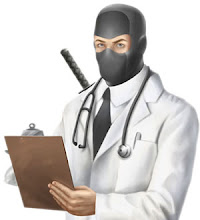Sarcoid Arthropathy

A female patient 43-year-old presented with pain, swelling, and stiffness in the hands and feet; she reported having had the symptoms for the previous 5 years. Possible rheumatoid arthritis had been diagnosed and was treated with nonsteroidal antiinflammatory agents and prednisone. Pulmonary sarcoidosis had been diagnosed 14 years earlier. On examination, the patient had dactylitis of the second and third fingers of the right hand and the fifth finger of the left hand. The second and fourth toes of both feet were swollen.
The erythrocyte sedimentation rate and level of angiotensin-converting enzyme were elevated. Test results for rheumatoid factor and anti–cyclic citrullinated peptide antibodies were negative.
Radiographs of the hands and feet showed several circumscribed, corticated lytic bone lesions that were consistent with sarcoid granuloma. Cystic radiolucent areas along with extensive bone erosions with pathologic fractures were also seen.
Manifestations of sarcoidosis involving the bones and joints can occur early or late in the illness, and as in this case, the clinical presentation may appear similar to that of rheumatoid arthritis. This patient received treatment with corticosteroids.
Labels: CASES


